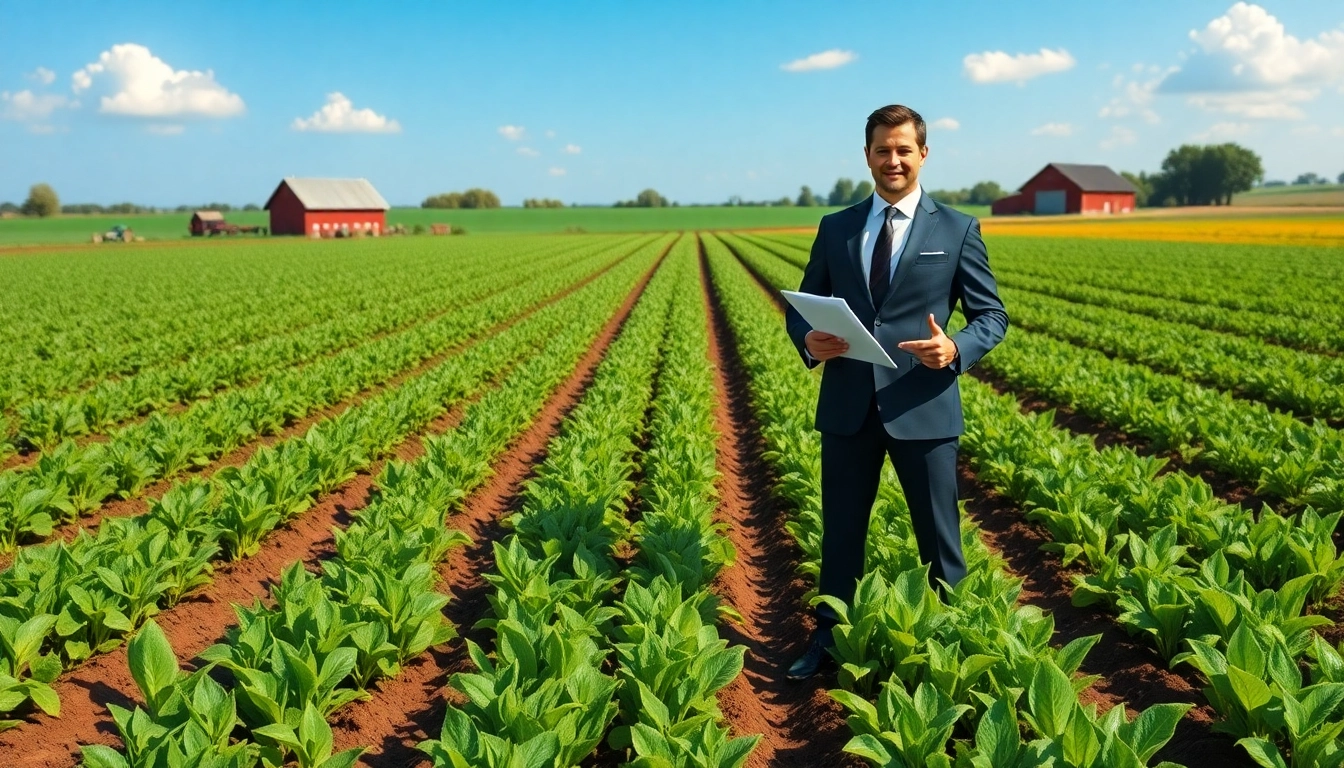Introduction to Agricultural Law
Agricultural law is a branch of law that deals with the myriad legal issues arising from agricultural production and farming practices. This area encompasses a broad spectrum of legal topics affecting not only farmers but also agribusinesses and agrarian communities. As the world’s population continues to grow and sustainability becomes imperative, understanding agricultural law is increasingly critical for stakeholders in the agricultural sector. By comprehending the extent and implications of this law, farmers can navigate the complex legal landscape while ensuring compliance and safeguarding their interests.
Definition and Scope of Agricultural Law
Agricultural law is not merely about farming itself; it encompasses various aspects including land use, natural resources, environmental regulations, labor issues, and even the complex networks of supply chain logistics. It also includes legal matters relating to crop production, livestock management, food safety, and the marketing of agricultural products. Moreover, agricultural law intersects with several other areas of law, such as environmental law, property law, and contract law, making it a multifaceted and intricate discipline.
Importance of Agricultural Law in Farming
The importance of agricultural law cannot be overstated. It impacts every facet of farming operations, from land ownership and zoning laws to labor relations and the sale of produce. Compliance with agricultural regulations ensures that farms operate legally and ethically, protecting both the farmers and the consumers. Additionally, understanding this law helps in mitigating legal risks, enhancing productivity, and maintaining access to essential resources.
Historical Background of Agricultural Law
The roots of agricultural law date back to ancient civilizations, where agriculture was essential for survival and development. Over the years, as societies became more structured, so did the laws governing agricultural practices. The evolution of agricultural law can be marked by significant legislation, such as land reform laws and regulations regarding labor rights, indicating a continual adaptation to the changing values of society regarding land utilization and farming ethics. The historical context is pivotal in understanding current legal frameworks and the ongoing reforms aimed at promoting sustainability and equity in agriculture.
Common Challenges in Agricultural Law
Regulatory Compliance Issues
One of the most pressing challenges faced by farmers under agricultural law is regulatory compliance. Farmers must adhere to a variety of federal, state, and local regulations that govern everything from pesticide use to labor practices. The complexity of these regulations, coupled with frequent changes and updates, can create confusion and lead to unintentional violations, resulting in fines or legal action. Farmers must remain vigilant and informed about their legal obligations to ensure compliance.
Land Use and Zoning Conflicts
Land use and zoning laws play a critical role in agricultural law. Conflicts frequently arise as urban development encroaches on agricultural land, leading to disputes about land use rights and zoning classifications. Farmers may find their land designated for non-agricultural uses, complicating their ability to operate effectively. Understanding local zoning laws is essential for farmers to protect their interests and navigate potential land use conflicts.
Water Rights and Resource Management
Water rights are a critical issue in agricultural law, especially in regions where water resources are limited. Farmers often face challenges related to the allocation and usage of water for irrigation and livestock. Legal disputes can arise over water rights, particularly in states with competitive agricultural practices and limited water supply. Effective resource management and understanding of water rights laws are paramount for farmers to sustain their operations while adhering to legal requirements.
Litigation and Dispute Resolution in Agricultural Law
Types of Disputes Farmers Face
Farmers encounter various types of disputes that can escalate into litigation if not resolved amicably. Common issues include contracts and agreements with suppliers or buyers, regulatory compliance green zones, and land use conflicts, as previously mentioned. Additionally, disputes can arise regarding intellectual property rights related to genetically modified organisms or patented farming technologies. Each of these issues requires careful legal consideration to resolve effectively.
Negotiation Strategies for Farmers
Effective negotiation is vital for farmers to resolve disputes without resorting to lengthy and costly litigation. Strategies may include understanding the interests of all parties involved, maintaining clear communication, and being prepared to explore various resolution options. By establishing a rapport with all stakeholders, farmers can work towards mutually beneficial agreements that uphold their rights while fostering good relationships with neighboring businesses and organizations.
Understanding Mediation and Arbitration
Mediation and arbitration are alternative dispute resolution (ADR) techniques that can be particularly beneficial in agricultural law disputes. Mediation involves a neutral third-party mediator who facilitates negotiations between the disputing parties, while arbitration involves a neutral third party who makes a binding decision. Both methods can save time and reduce costs compared to traditional litigation, making them attractive solutions for farmers looking to resolve conflicts efficiently.
Best Practices for Navigating Agricultural Law
Developing Strong Contracts with Farms
Creating strong contracts is fundamental in agricultural law. Contracts should be precise, covering all terms of engagement, including pricing, delivery, quality standards, and dispute resolution mechanisms. Employing legal counsel to draft or review contracts can safeguard against future disputes and ensure compliance with applicable laws. A well-structured contract protects both parties and clarifies expectations, minimizing the risk of litigation.
Consultation with Legal Experts
Given the complexities of agricultural law, consultation with legal experts is invaluable for farmers. Attorneys specializing in agricultural law can provide insights on compliance, land use, employment practices, and contract disputes. Regularly consulting with legal experts ensures that farmers are informed of their rights and responsibilities and helps preempt potential legal issues before they escalate.
Staying Informed on Regulatory Changes
The landscape of agricultural law is ever-evolving, influenced by changes in government policy, environmental conditions, and technological advancements. Farmers must stay informed about legislative changes affecting their operations, from new regulations on pesticide use to amendments in labor laws. Participating in industry associations and attending workshops can help farmers remain updated and ensure continued compliance.
Future Trends in Agricultural Law
Impact of Technology on Agricultural Law
Technological advancements are revolutionizing farming practices and, by extension, agricultural law. Innovations such as precision agriculture, biotechnology, and data analytics are reshaping how farms operate. However, these technologies introduce new legal considerations, including intellectual property rights and cyber-security measures. As technology continues to evolve, so will the laws governing its application in agriculture.
Environmental Law and Sustainable Practices
Environmental concerns are increasingly influencing agricultural law, pushing for sustainable farming practices and responsible land management. Laws regulating emissions, water quality, and sustainable land use are becoming more stringent. Farmers must balance productivity with environmental stewardship, adopting sustainable practices to not only comply with the law but also enhance their market appeal to environmentally-conscious consumers.
The Role of Government Policies in Shaping Agricultural Law
Government policies are instrumental in shaping agricultural law. Subsidies, grants, and incentives can encourage certain agricultural practices, while regulations may restrict others. Farmers need to stay abreast of governmental changes and the implications these have on their operations. Engaging with policymakers and advocating for favorable conditions can help ensure that farmers’ interests are represented in future legislative developments.



